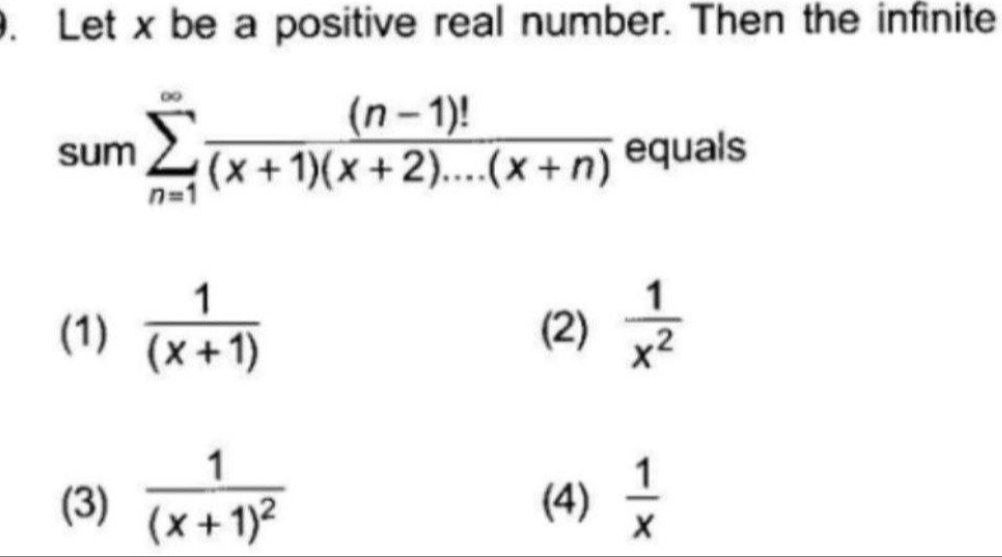Question
Question: Let x be a positive real number. Then the infinite sum $\sum_{n=1}^{\infty} \frac{(n-1)!}{(x+1)(x+2)...
Let x be a positive real number. Then the infinite sum ∑n=1∞(x+1)(x+2)...(x+n)(n−1)! equals

A
(x+1)1
B
x21
C
(x+1)21
D
x1
Answer
x1
Explanation
Solution
The general term of the series can be written as an=Γ(x+n+1)(n−1)!Γ(x+1), which is the Beta function B(n,x+1). Using the integral representation of the Beta function, an=∫01tn−1(1−t)xdt. The sum of the series is S=∑n=1∞∫01tn−1(1−t)xdt. Interchanging summation and integration, we get S=∫01∑n=1∞tn−1(1−t)xdt. The sum is a geometric series: ∑n=1∞tn−1=1−t1 for ∣t∣<1. Thus, S=∫011−t1(1−t)xdt=∫01(1−t)x−1dt. Evaluating this integral gives S=[−x(1−t)x]01, which is incorrect. Using substitution u=1−t, du=−dt, the integral becomes ∫10ux−1(−du)=∫01ux−1du=[xux]01=x1x−x0x=x1 (since x>0).
